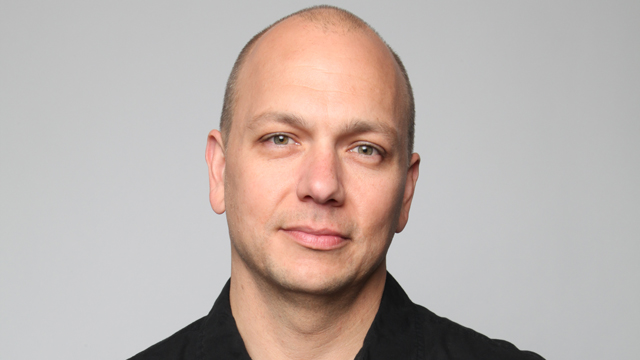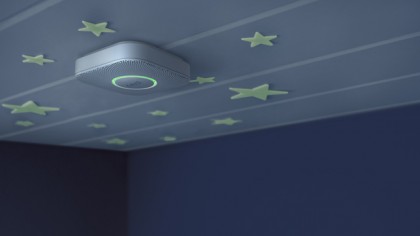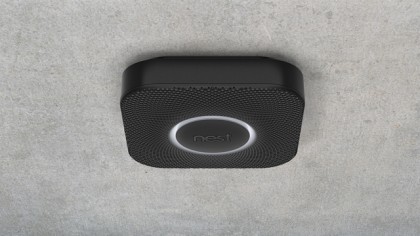From Apple to appliances: how Nest is making everyday items relevant again
The creator of Nest Protect speaks to TechRadar

"The Internet of Things? I hate that phrase. It is horrible."
You would think that the creator of a smart smoke alarm and connected thermostat would be the poster boy for the so-called Internet of Things but Tony Faddell, the CEO of Nest, wants nothing to do with the surge in everyday objects connecting to the internet.
"Just because you can connect something doesn't mean that you should," he tells TechRadar when we met up with him in London.
"Connection is another technology that can dramatically change a product and an experience but people are just connecting anything. Why are there fridges with tablets on the front of them? They just bashed two things together without really understanding."
It is this understanding that is seemingly permeates through Nest's product lineup, which have been met with huge popularity in the US and are now heading to the UK with the imminent launch of Nest Protect.
Smart smoke
Nest Protect is a smart smoke alarm that can be monitored through an app. It is constantly connected to other Nest Protects that may be in your home and offers an intuitiveness that has been missing from the smoke alarm market.
A market that has, up until now, been focused on functionality and not desirability – something Fadell hopes to change.
Sign up for breaking news, reviews, opinion, top tech deals, and more.

"Nest is all about getting those unloved things in your home, reinventing them and making you reawakened to them and make you embrace them in a whole new way," he says.
If this sounds like a familiar way to attack a market, then it is – it's how Apple approaches things. Fadell is ex-Apple, having been senior vice president of the iPod division, and the ethos of his old company has definitely rubbed off on him.
"We are all about taking those things everyday that are important to you and should be important to you and casting them in a whole new light with new technology, solving the problems that have been around for decades," he explains, with words that wouldn't be out of place coming from the mouth of Jony Ive.
For Fadell, his Apple links have elevated his company above being a mere startup with a decent idea to his products being used in over 90 countries.
"Once you rethink the entire product, connectivity is right."
The numbers are impressive. According to Fadell, 1 billion kWh of energy has been saved to date because of Nest's Learning Thermostat. And in the US, over 50 million Nest Protects have been sold.
But it's not just numbers, according to Fadell, that drives Nest but the knowing that its products can make a serious difference.
Alarm bells
"72% of fire-related deaths happen because people had a smoke alarm and the ripped it from the wall, or the batteries died," notes Fadell.
"This makes no sense. And it got me thinking, 'why can't we have something that we can't ignore and enjoy?'
"The government mandates that you have these things in your house. So there is government intrusion in your home but with a ridiculous product that you have to have. We should have them because they keep us safe, but why are they so painful?"

This was the hook that helped Fadell create Nest Protect, where the smoke alarm does the hard work for you and it being Wi-Fi connected is a big part of this.
"Can't we have something that we can't ignore and enjoy?"
"The reason they are connected within your home is that you will be able to see where the smoke comes from. So, if it is in the kitchen, you may think 'that's the quiche burning, I need to go get it'. If it is somewhere else, you may not have any idea why there is smoke so you will want to get out," Fadell explains.

Marc Chacksfield is the Editor In Chief, Shortlist.com at DC Thomson. He started out life as a movie writer for numerous (now defunct) magazines and soon found himself online - editing a gaggle of gadget sites, including TechRadar, Digital Camera World and Tom's Guide UK. At Shortlist you'll find him mostly writing about movies and tech, so no change there then.